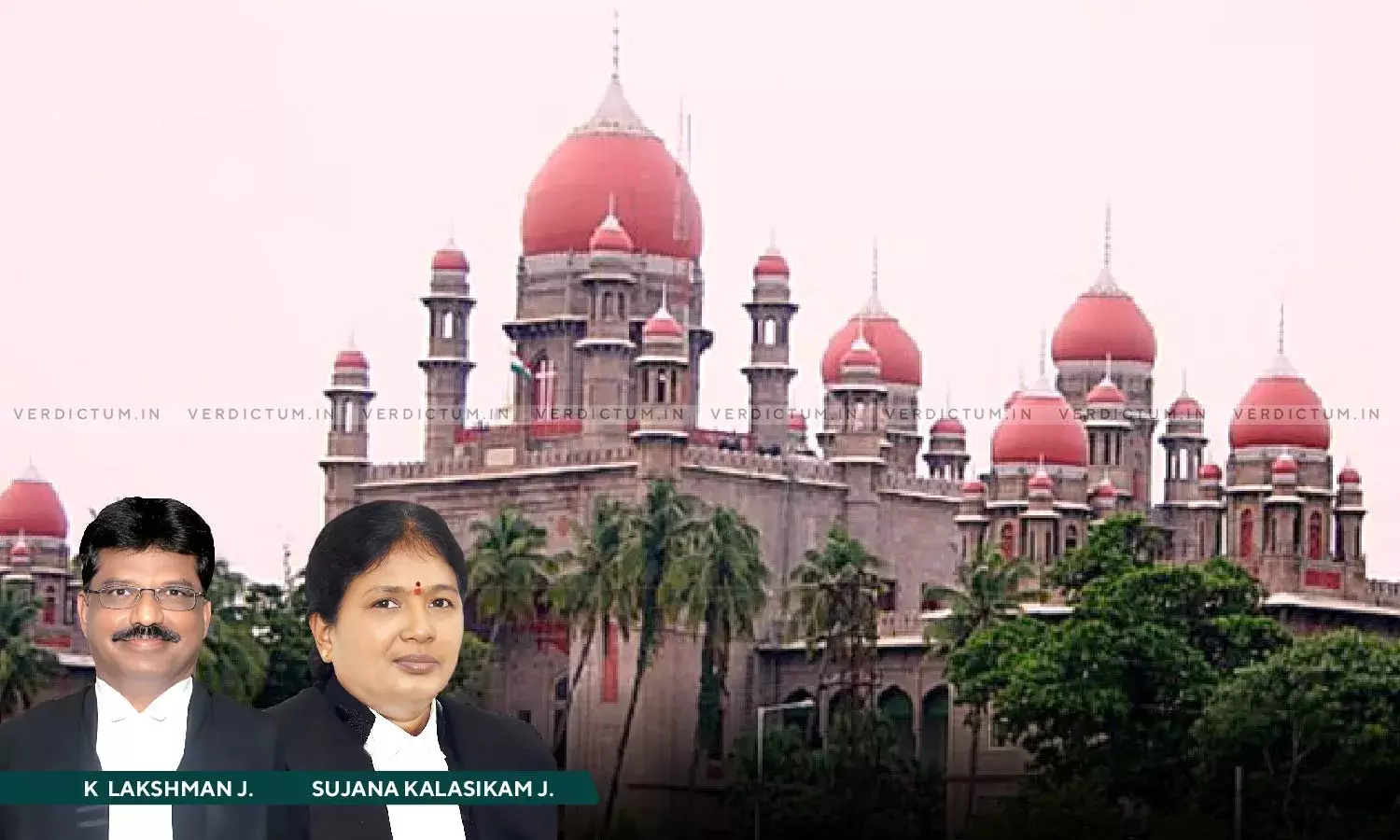“Mere Uttering The Words “Go And Die” Will Not Constitute The Offence Under Section 306 Of IPC”- Telangana High Court

The Telangana High Court has held that mere uttering the words “go and die” will not constitute offence under Section 306 of the Indian Penal Code (IPC) i.e., abetment of suicide.
An appeal was preferred by the appellant who was aggrieved by the judgment passed by the Special Sessions Judge for SC/ST (POA) Cases wherein the appellant was convicted for offences punishable under Sections 417 and 306 IPC and Section 3 (2) (v) of the SC/ST (Prevention of Atrocities) Act, 1989.
A Division Bench comprising Justice K. Lakshman and Justice K. Sujana observed, “Mere uttering the words “go and die” will not constitute the offence under Section 306 of IPC. Even if we accept the prosecution story that the appellant did tell the deceased to “go and die” that itself does not constitute the ingredients of “instigation”. The word “instigate” denotes incitement or urging to do some drastic or inadvisable action or to stimulate or incite presence of mens rea, therefore, is the necessary concomitant of instigation.”
The Bench said that the words uttered in a quarrel or on the spur of the moment cannot be taken to be uttered with mens rea and that in the present case also, the prosecution failed to prove the mens rea and the evidence on record is not sufficient to prove the offences under Sections 306 and 417 of IPC.
Advocate P. Prabhakar Reddy appeared on behalf of the appellant while Additional Public Prosecutor T.V. Ramana Rao appeared on behalf of the respondent.
Facts of the Case -
The deceased belonged to Nayakapu caste which comes under the ST category and the accused was a toddy tapper. For the last three years, the accused used to climb toddy trees situated adjacent to the house of de facto complainant and he also used to talk with the deceased. In the year 2007, while the deceased went to attend nature calls, the accused caught hold her and dragged her to commit rape. When she made hues and cries, the neighbours gathered and the accused escaped from the place and a criminal case was registered against the accused. During the pendency of the trial, the accused requested the deceased to compromise the case as he was ready to marry her. Thereafter, the deceased agreed to settle the matter and compromised the case and since then the accused developed illegal contacts with the deceased and deceived her saying that he will marry her after the marriage of his sister.
Later, the accused fixed his marriage with a woman of Palampet Village and on coming to know the same, the deceased, de facto complainant, her younger brother, and others went to the house of the accused and asked him about the marriage to which the accused replied that he would not marry her and abused them. On the same day, the accused came to her house and told that his marriage was fixed with another woman and he could not marry the deceased as she belonged to Nayakapu caste and asked her to consume poison and die. On hearing the same, the deceased immediately went inside the house and consumed pesticide poison. Subsequently, while she was being shifted to the community health centre, she died. The Police investigated the case and a charge sheet was filed for the offences punishable under Sections 417, 306 IPC and Sections 3(1)(x), 3(1)(xii), 3(2)(v) of the SC/ST Act, and the accused was convicted by the court.
The High Court in view of the above facts noted, “The trial Court came to conclusion that accused instigated the deceased by stating that “go and die” on that deceased committed suicide without discussing the evidence on record in proper perspective. Further wrongly, convicted the accused for the offences under Section 417 and 306 of IPC and Section 3 (2) (v) of the SC/ST (POA) Act, 1989. In view thereof, this Court is of the opinion that the impugned judgment dated 28.10.2013 is not legally sustainable and it suffers with irregularity, as such, it is liable to be interfered with to the extent of convicting the accused for the offence punishable under Section 417, 306 of IPC and Section 3 (2) (v) of the SC/ST (POA) Act 1989.”
The Court concluded that e-evidence on record is not sufficient to convict the appellant/accused as the prosecution has failed to prove its case beyond the reasonable doubt and, therefore, the benefit of doubt can be given to him.
Accordingly, the High Court allowed the appeal and set aside the judgment of conviction.
Cause Title- Jangam Ravinder v. The State of Andhra Pradesh


